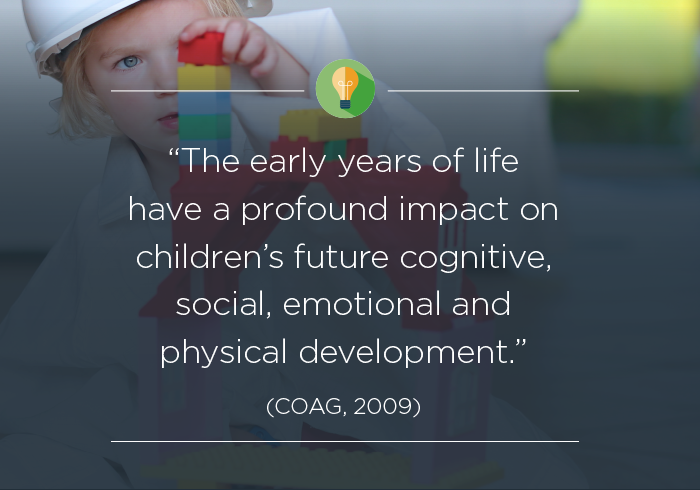
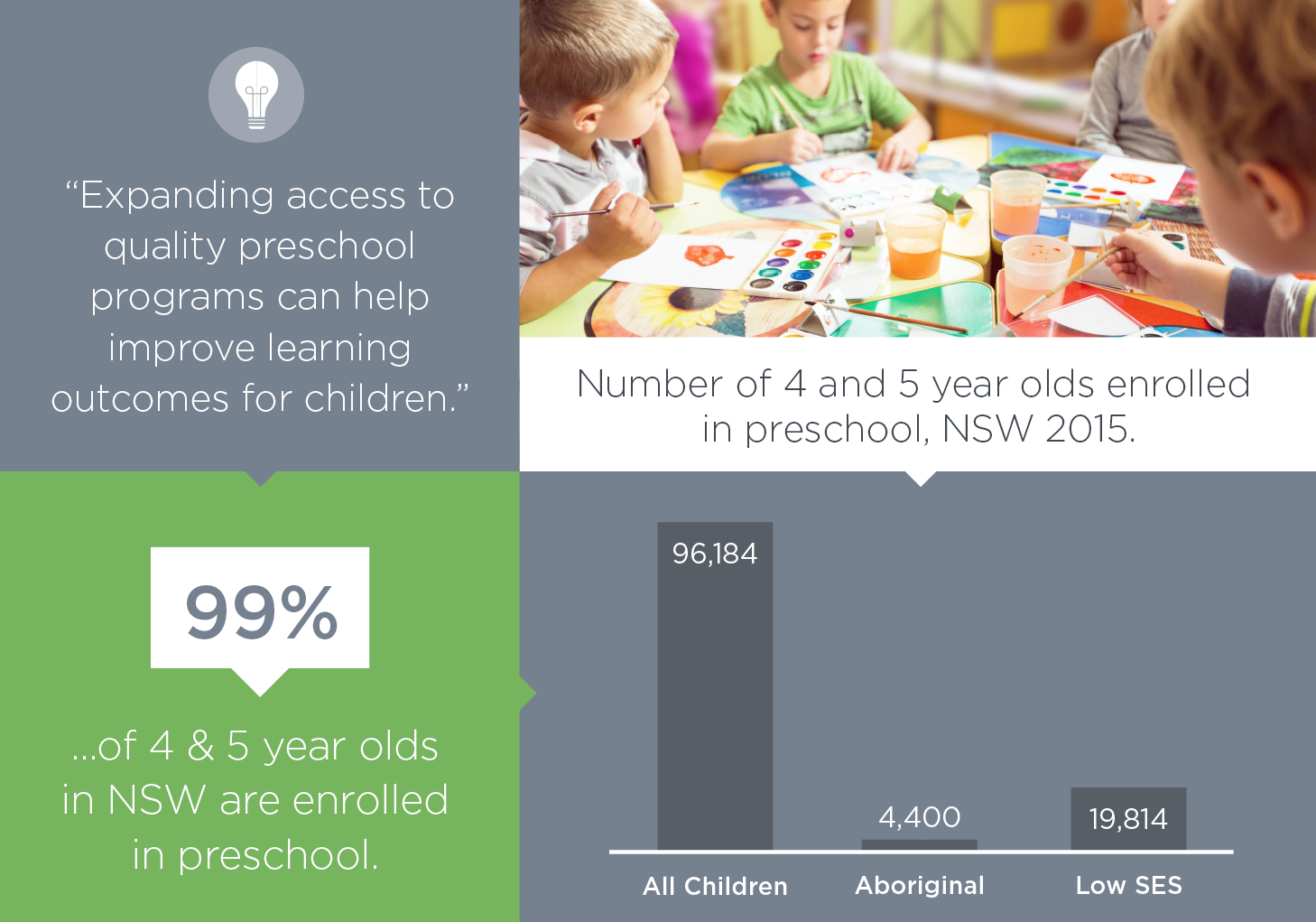
In Australia, quality preschool programs comprise of structured play-based learning delivered by a qualified teacher. Children aged 3 to 6 years may be enrolled in a preschool program, although programs are typically delivered to 4 and 5 year olds, on the basis that they will be starting school the following year.
The hourly cost in NSW is consistently higher than the Australian average, which is in part a result of preschool being free in some states and territories. Preschool programs can be delivered through a variety of settings. The median hourly cost of preschool is adjusted for inflation and reflects the price of access to a preschool program across all of these settings.
The National Quality Standard (NQS) was introduced in 2012 to provide consistent information about the quality of early childhood and education (ECE) services, with the assessment of all services expected to take some time. Higher-risk ECE services in NSW are being assessed ahead of other services, possibly lowering the percentage of services meeting or exceeding the Standard.
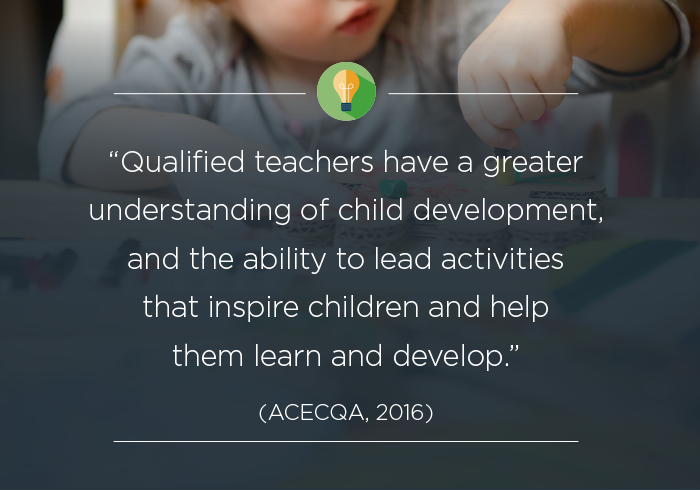
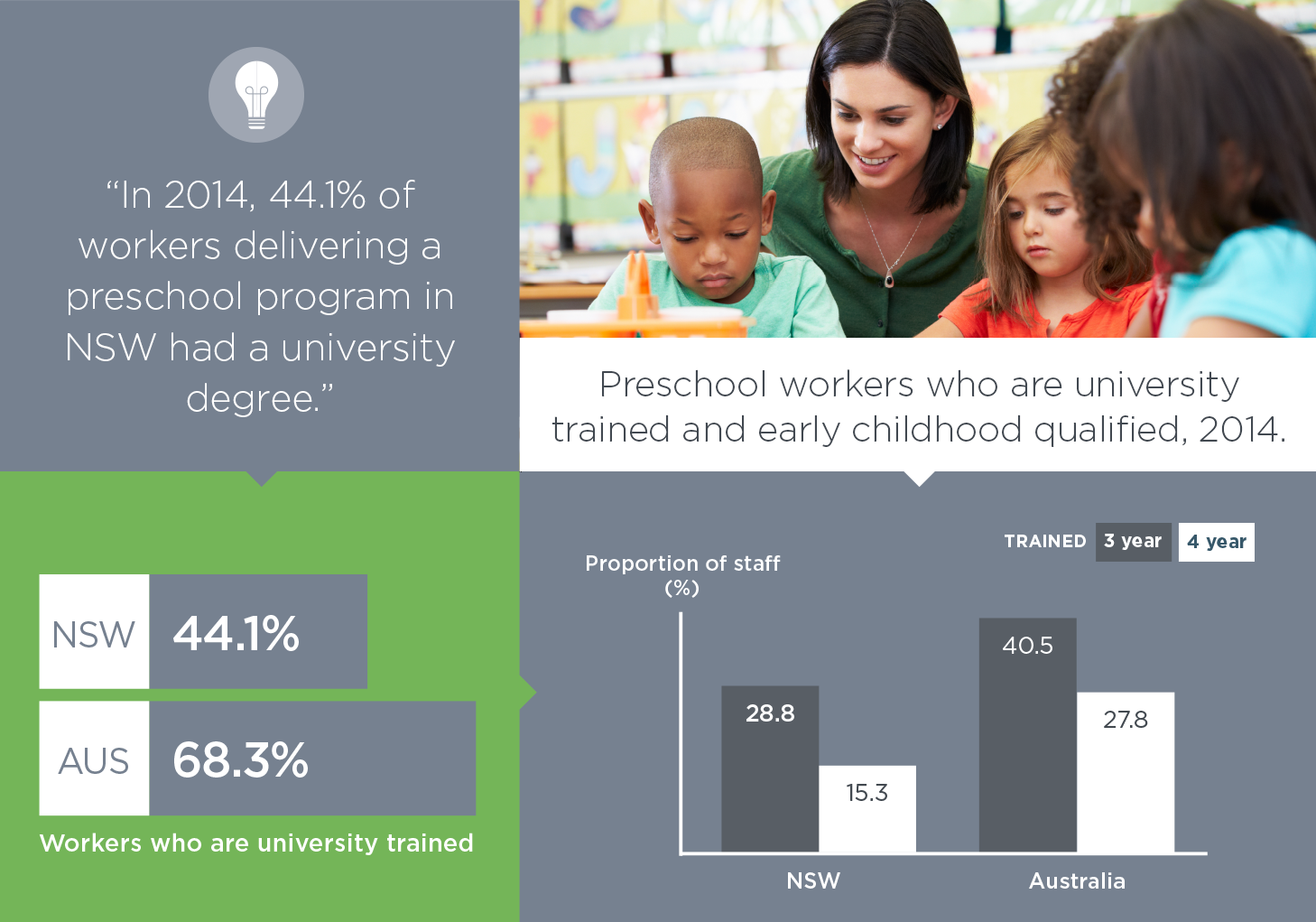
The National Partnership Agreement on Universal Access to Early Childhood Education seeks to have preschool programs delivered by four-year university trained early childhood teachers.


